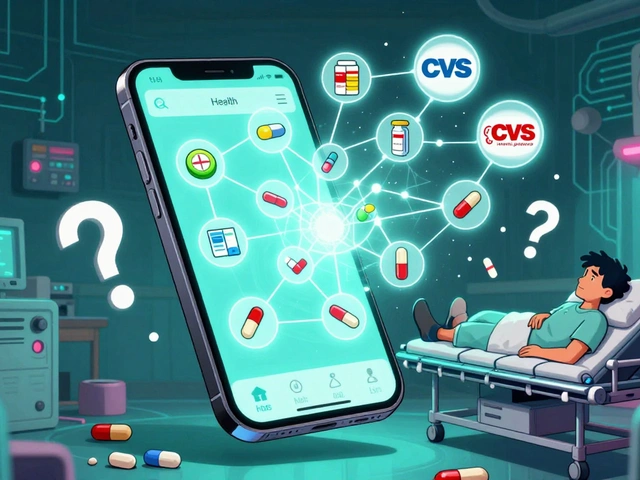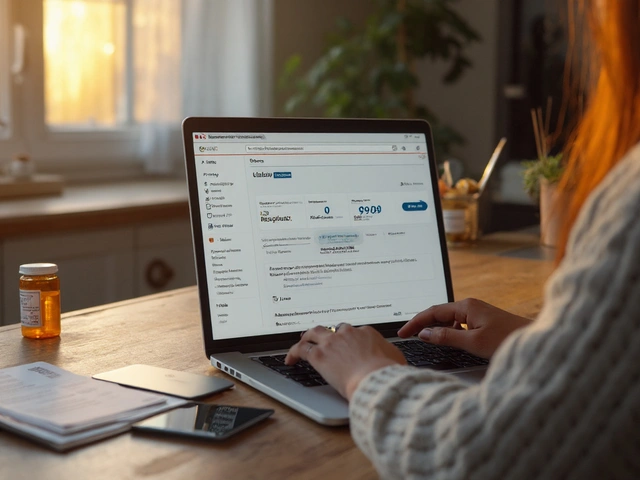Fluconazole in HIV/AIDS: how it helps prevent and treat fungal infections
If you or someone you care for lives with HIV, fungal infections can become a serious and recurring problem. Fluconazole is a widely used antifungal that often makes a big difference—relieving painful thrush, treating more serious infections, and helping people feel better faster. Below I’ll explain when it’s used, what to watch for, and simple tips to stay safe.
When doctors use fluconazole in HIV/AIDS
Fluconazole treats common fungal infections that happen when the immune system is weakened. The most typical uses are oropharyngeal (mouth) and esophageal yeast infections, which cause white patches, pain, or trouble swallowing. It’s also used as part of long-term care for people who had serious fungal infections like cryptococcal meningitis, where it helps prevent the infection from coming back.
Keep in mind: fluconazole isn’t a cure for HIV itself. It targets fungi. Doctors pick it when fungal organisms are the problem and when the expected benefit outweighs risks. They also consider other medicines you take—fluconazole can interact with drugs for HIV, blood thinners, and some cholesterol medicines.
Practical tips and safety
Want to use fluconazole safely? Start here: always follow your clinician’s instructions and finish the prescribed course unless told otherwise. Tell your provider about all pills and supplements you take—interactions matter. If you notice stomach upset, headache, skin rash, dark urine, or yellowing of the skin/eyes, call your clinic—these can signal side effects that need checking.
Long-term or repeated use can lead to resistant fungi. That means the medicine stops working well. To reduce that risk, clinicians try to use the shortest effective course and review ongoing need regularly. Regular clinic visits also spot relapse early and help adjust treatment.
Monitoring may include liver tests, since fluconazole can affect liver function in some people—especially when combined with other liver-risk drugs or alcohol. Avoid heavy drinking while on treatment and report any unusual tiredness or belly pain.
Access and cost are practical concerns. Generic fluconazole is widely available and often affordable through clinics, public health programs, and community pharmacies. If cost or supply is an issue, ask your clinic about assistance programs or alternative options.
Finally, remember the big picture: controlling HIV with effective antiretroviral therapy reduces the risk of fungal infections. Fluconazole treats and prevents specific fungal problems, but keeping HIV suppressed is the best long-term protection.
If you have questions about when fluconazole makes sense for you, about interactions with your HIV meds, or about side effects, speak with your healthcare team. They can tailor the choice to your situation and help keep your treatment safe and effective.
 10 May 2024
10 May 2024
The Crucial Role of Fluconazole in Managing HIV/AIDS
Explore how Fluconazole is essential in the treatment and management of HIV/AIDS, delving into its uses, effectiveness, and practical tips for those affected by the virus. Understand its role in preventing opportunistic infections and improving the quality of life for patients.
Latest Posts
-

Personal Health Records: How to Manage Medications Across Pharmacies
-
Discover the Amazing Health Benefits of Banaba: The Ultimate Dietary Supplement for Weight Loss and More!
-

The Importance of Regular Checkups for Atrophic Gastroenteritis Patients
-

Buy Cheap Generic Lexapro Online - Guide to Safe & Affordable Options
-

Buy Generic Lipitor Online Cheap: Safe Options, Prices & 2025 Guide

16